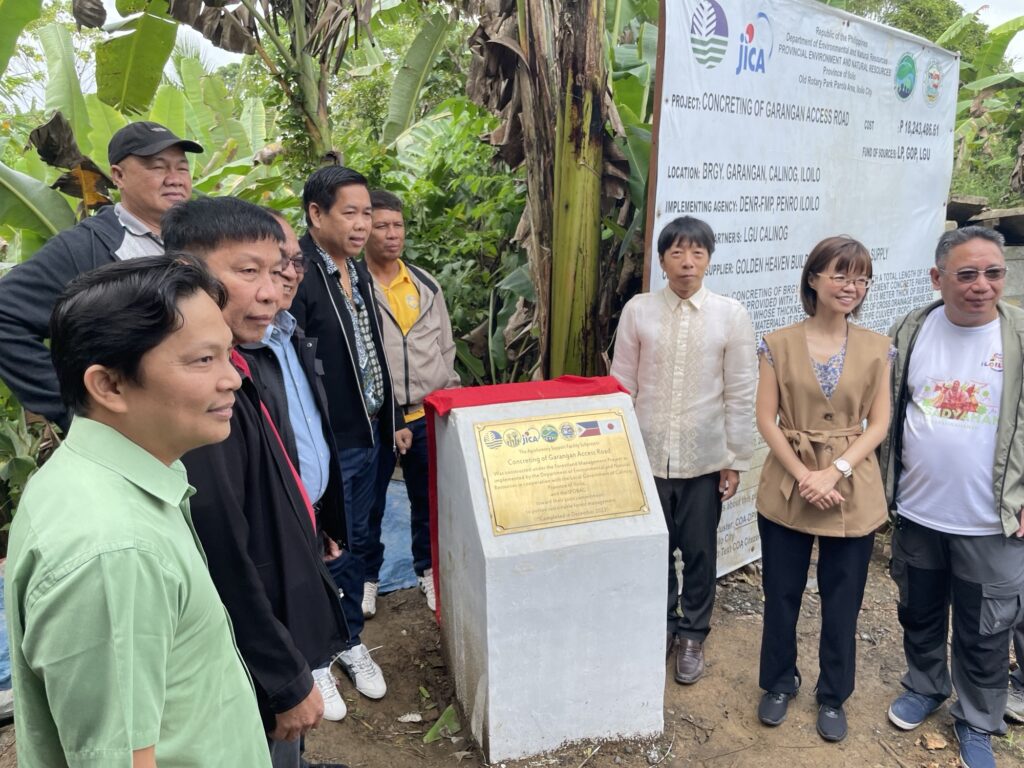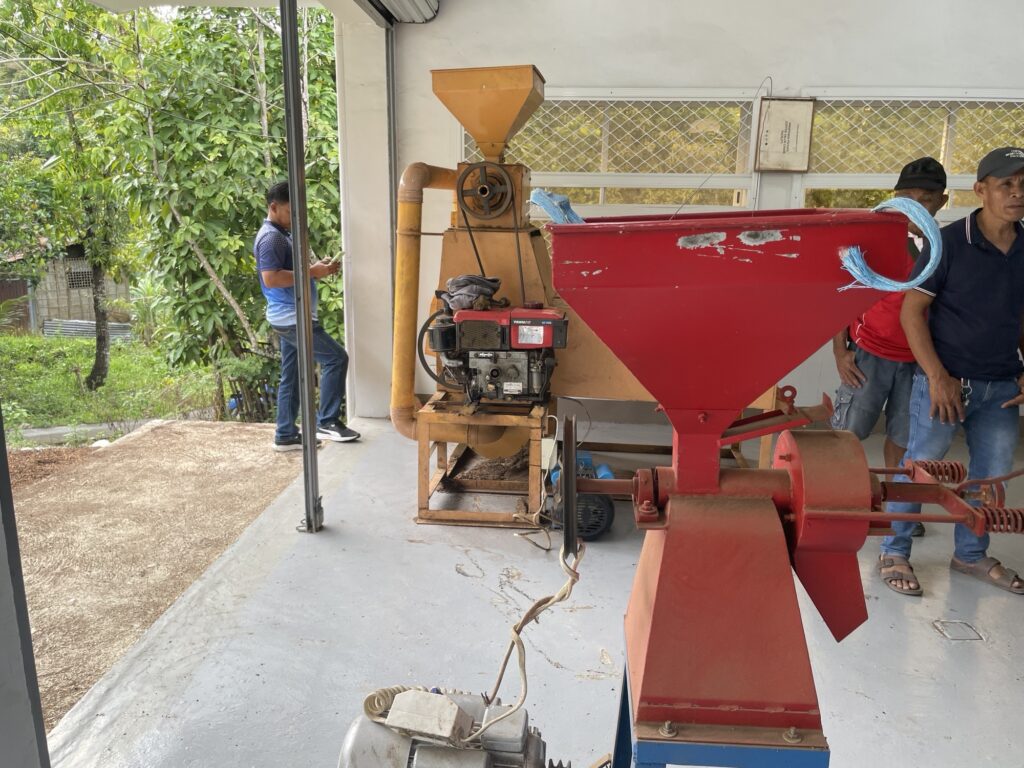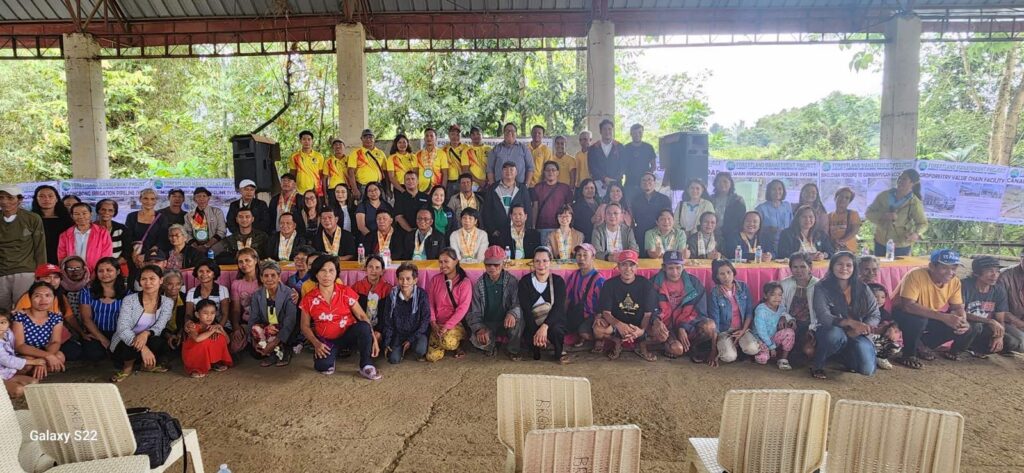On 26 January in Calinog, Iloilo, Japan Embassy First Secretary and Agriculture Attaché Tachikawa Jumpei attended the official turnover of the completed agroforestry support facilities under the Embassy’s Forestland Management Project.
Also present during the event were Department of Environment and Natural Resources OIC-Assistant Secretary for Field Operations-Western Mindanao Arleigh Adorable, DENR Regional Executive Director Livino Duran, Calinog Municipal Mayor Francisco Calvo and JICA (Japan International Cooperation Agency) Philippines Office project formulation advisor Takao Ryoko.

Ten agroforestry support facilities were turned over to the municipalities of Calinog, Lambunao and Janiuay, Iloilo. These facilities include irrigation pipeline systems, access roads, pathways and bridges that aim to connect communities to markets, boost their access to social services and help sustain community-based forestry initiatives.
A coffee processing facility was also constructed to further develop coffee processing and boost livelihoods in Iloilo.

This endeavor forms part of the 10-year 9.244-billion-yen Forestland Management Project of the Government of Japan through JICA and the DENR.
The FMP seeks to protect 71,300 hectares of forests in the country’s watershed areas Upper Magat and Cagayan River Basins, Pampanga River Basin and the Jalaur River Basin covering the provinces of Ifugao, Nueva Vizcaya, Quirino, Nueva Ecija and Iloilo.
Launched 10 years ago, the FMP focuses on environmental protection, including forestland management, as one of the major pillars of collaboration between the Philippines and Japan.
In his message, Tachikawa expressed his hope that the project will contribute not only to climate change mitigation and environment protection, but also to improved livelihoods and the sustained flow of development in the recipient municipalities, creating a positive ripple effect in neighboring communities.
